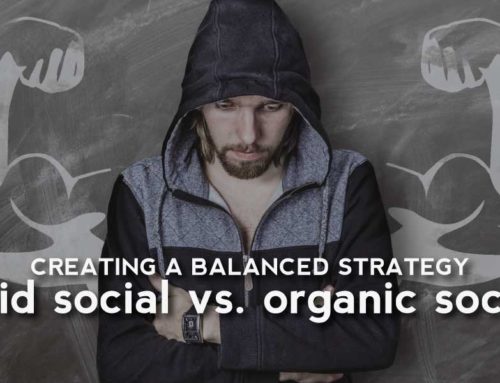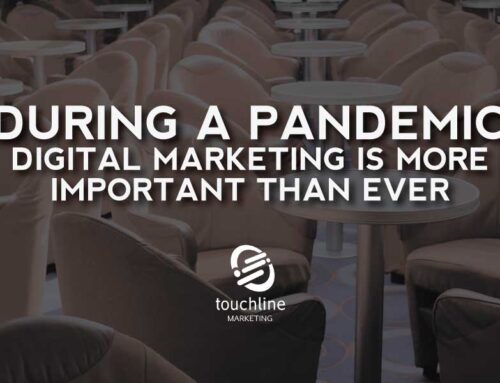Behind the Curtain of Industry Awards
The main misconception about industry awards is that these awards truly go to the best or most deserving firm. This is absolutely false.
If the perception of a decision maker at a client is one that lends credibility to such awards, this is now your reality and you have to play the game. Perception becomes reality.
One of the tactics we formulated for a past client was maximizing their brand exposure through the use of industry awards. Industry awards can be an extremely powerful differentiation point during the lead generation, opportunity conversion, and decision phases of the sales cycle.
Most industry awards do not provide the best indication of who is the best at what an award was intended to recognize but rather who positioned themselves best to win the award based on the “behind the curtain” criteria.
Let’s place ourselves in a “hypothetical” situation:
While board members of BIG TIRE CORP. compare ACME CONSULTING to WIDGET CONSULTING after a sales presentation for a BORACLE SOFTWARE implementation project, the CIO notes that ACME CONSULTING was the 2015 BORACLE Partner of the Year and WIDGET CONSULTING was not.
Although the board members AT BIG TIRE CORP. feel that WIDGET CONSULTING gave a compelling presentation and have a great background, the board gives extra credibility to BORACLE rewarding ACME CONSULTING for their quality work in their technology area with an award. ACME CONSULTING wins the BIG TIRE CORP. project.
It may seem as if we are bashing the baseline concept of industry awards, but industry awards can be an extremely powerful differentiation point. The incorporation of this element into the right marketing strategy is strongly encouraged.
In the hypothetical situation above, the reason WIDGET CONSULTING didn’t win the award was not because they were inferior to ACME CONSULTING. They lost simply because they did not have access to someone who could position a firm in the best light and addresses the pain point experienced by BORACLE. The award was likely created to address a pain point for the presenter.
When competing for an award, the first thing we need to examine is why a particular award exists and why it was created.
Top Reasons an Industry Award Is Typically Created
- Make more money for the presenter of the award.
- See #1.
How Do Industry Awards Make More Money?
- Case Studies – This is especially popular in the world of technology software and hardware. Technology vendors don’t always have visibility to what happens after their software or hardware is sold. Technology vendors need these reference stories to help drive other sales cycles forward. An award is created, customers and partners submit case studies for consideration, and the winner is the case study that addresses pain points experienced by the vendor. Everybody wins: the vendor gets a mountain of reference stories and the partner gets a badge of honor.
- Subtle Publicity – Nobody likes to constantly be sold something. It’s uncomfortable. Smart companies are always searching for ways that they can interact with their clients in a casual, non-salesie, non-threatening way. This is why the round of golf with a client can be so effective. An award can have a similar non-threatening effect if the award or the events surrounded the award can be publicized in a way that is not perceived as a sales pitch. The presenter is getting brand visibility in a positive fashion.
- Licensing & Sponsorships – I’ll use the INC.500/5000 as an example. This award arguably has some slightly flawed award criteria. The designation is given to companies who have grown the fastest over a 3 year period. A company is required to submit their financial data through an accredited source (accountant) but the data element collected is only revenue (not profit or income). In theory, a company could be named #1 on the Inc. 500/5000 list and have negative cash flow. Why is this award so important to INC. Magazine? The obvious answer is they sell more magazines but they also give the award winners the opportunity to pay thousands to license the use of the award logo, physical awards (for the office), and attend a the 3-day award conference. Sponsors pay big bucks to INC. to get their brand in front of hundreds/thousands of CXOs at “successful” companies.
- Customer Loyalty – Even we have created an award program for a client that was extremely successful. Let’s call it the “HIGHLIGHT AWARD”. The HIGHLIGHT AWARD recognized excellence by companies in a certain technology area. The award had its own logo, appeal, and brand recognition. Multiple channels broadcast the non-threatening HIGHLIGHT AWARD message through email marketing, social media, webinar teasers, video, sales presentations, surveys, trade shows, and more. A very classy reception with free food, cocktails, and music provided the setting for a combination customer appreciation event/award presentation/sales pitch opportunity. Award evaluation criteria included the purchase of multiple service lines from the presenter, account revenue level, commitment to publicity, and future revenue potential. In exchange for participating in the award events, a webinar, and a testimonial video, the client received a rather large gift. How did this help make money? It solidified the long-term relationship with several large accounts, including one that was severely strained. The account contacts were so honored by the award that it was a significant factor in winning several future projects totaling over $1M. Other companies that did not win the award, but attended the reception, frequently asked how they could become a candidate.
This is just an abbreviated example… but you get the main idea of how these awards can generate money.
It is very possible that an award was created to provide exposure to something good natured. An example of this might be an eco-friendly award that rewards and provides exposure to environmentally-friendly technology solutions. However most awards, once you pull back the covers, are based on a well defined strategy.
 Jeremiah Johnson is the Founder and Chief Modern Marketing Strategist at Touchline Marketing. You can find Jeremiah on LinkedIn or on Twitter (@touchlinemktg).
Jeremiah Johnson is the Founder and Chief Modern Marketing Strategist at Touchline Marketing. You can find Jeremiah on LinkedIn or on Twitter (@touchlinemktg).





